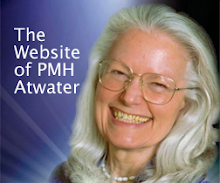The Farmstead Community
I know Joel Salatin personally and have eaten food grown on his farm. My respect for him and the way he does things runs deep. You may not think something like this is of concern to near-death experiencers and those like them, but it is. Soil, food, animals, water – all of these are of immense interest to experiencers of transformational states. Without good soil, water, food, we have nothing to build from. Our experiences teach us how valuable the earthplane is and how we are responsible for taking care of it. Some experiencers return unable to even step on an ant, they are so in awe of life and the many levels of being. I am a member of VICFA Voice, because I stand with farmers who understand deep ecology and the way of the sacred. Check around and see if there is a group like this in your state. If there is, join it, or help this one. Do what you can to support people who truly love nature and farming. If we help them, they can support us with the wonder of good nutrition and fabulous food! Thank you, PMH Atwater
http://www.vicfa.org/newsletter/2010-FebVICFAVoice.pdf
The Farmstead Community
By Joel Salatin
What defines the allure of Historic Williamsburg? Is it the costumes, the drum and fife corps, the buildings? All of those things add to it, of course, but I think most people are drawn to the imbedded farmstead crafts and industry.
The defining characteristic about Williamsburg, which differs from modern America, is the proximity to residences of what was, in that day, fairly heavy industry. They didn’t have the commercial district, the retail outlet district, the farming district, and the residential district. If you visit the George Wythe House, after going through the house you enter the backyard. There, busy at their work, are candle makers, spinners, a blacksmith, a barrel maker, and a woodworker.
If you study the on farm industry at Monticello, it’s the same thing. I recently finished a fascinating book about Pharsalia, a plantation south of Charlottesville that cured hams and had an on-site hospital for the slaves. These farmsteads bustled with the industry of the day. At Mt. Vernon, George Washington owned a mill, dock, and had numerous income streams, from whiskey to shad fishing.
All of these activities are appropriate for farms. Butchering, tanning, all food preservation from canning to curing, welding, energy generation, brewing, woodworking, spinning and clothes making—the list is endless. But today, this kind of activity is considered incompatible with farming. Oh, you can do it for yourself as a hobby, but don’t dare sell any of it! I call all this social and economic apartheid. And, lest anyone think this is a product of big business and conservatives, the radical environmentalists are just as bad. They want to lock up large tracts of land called wilderness. They kicked farmsteads off the Blue Ridge Mountains and took land and farms for a national park, dislocating people who had lived there for a long time. Today, we parse this apartheid down even to residential square footage. If you can afford a 1,500 square foot house, you can live in this section. But, if you can only afford a 1,000 square foot house, you have to live over in that section. Talk about becoming insular.
In 1915 some 1,500 auto manufacturers existed. Many of them were glorified backyard mechanics, tinkering and working in their own home shops, long before zoning regulations. This creativity worked out the kinks and slowly birthed the automobile. Today, this same kind of creativity has birthed the e-boom from home offices and computer consoles. The e-breakthroughs largely have come from individual, independent minds, not from big corporate efforts.
Two areas need this kind of home-based creativity to be unleashed today: food and energy. We hear about inner city food deserts. Nothing would solve that problem faster than vacant lot mini-farms and in-home food preservation and processing. Re-imbedding the entire food chain in a farm and village setting would exponentially increase creativity and innovation in food. The way to solve problems is not to centralize the innovation, but to spread it out and let more people participate in the solutions.
Rarely does the answer come from one source. The more brains, eyes, ears, and hands participate, the better the solution and the quicker it will occur. A lady in Texas told me recently that she’d been turned in to the zoning board for growing a tomato plant in her flower garden. Her residential area prohibits farming…and growing a tomato is farming. Is this crazy or what?
The same is true for energy. The best thing we could do for energy is to dismantle the Bureau of Alcohol, Tobacco, and Firearms (BATF) so that anyone who wanted a still could have one. We should have a blanket exemption for windmill towers up to a certain height. The paperwork and bureaucratic permitting process to produce your own energy is not only inappropriate, it actually stifles innovation.
I wish I had a nickel for every time some jackleg mechanic has told me about a little carburetor gizmo that will increase fuel efficiency by 20 percent. I’m not mechanical enough to figure out how to install these things. I’d be happy to pay someone to install these things and they’d be happy to do it. But if they do, then they have a business, and if they are working out of their residence, that’s prohibited.
If we’re ever going to bring creativity to the table, we have to quit this economic and vocational apartheid nonsense. Instead of restricting access to local commerce, we need to encourage local commerce. Taken from the February VICFA Voice. You can join the Virginia Independent Consumers and Farmers Association at: http://www.vicfa.org/.
Labels: Sustainable Agriculture, Sustainable Farming, VICFA

